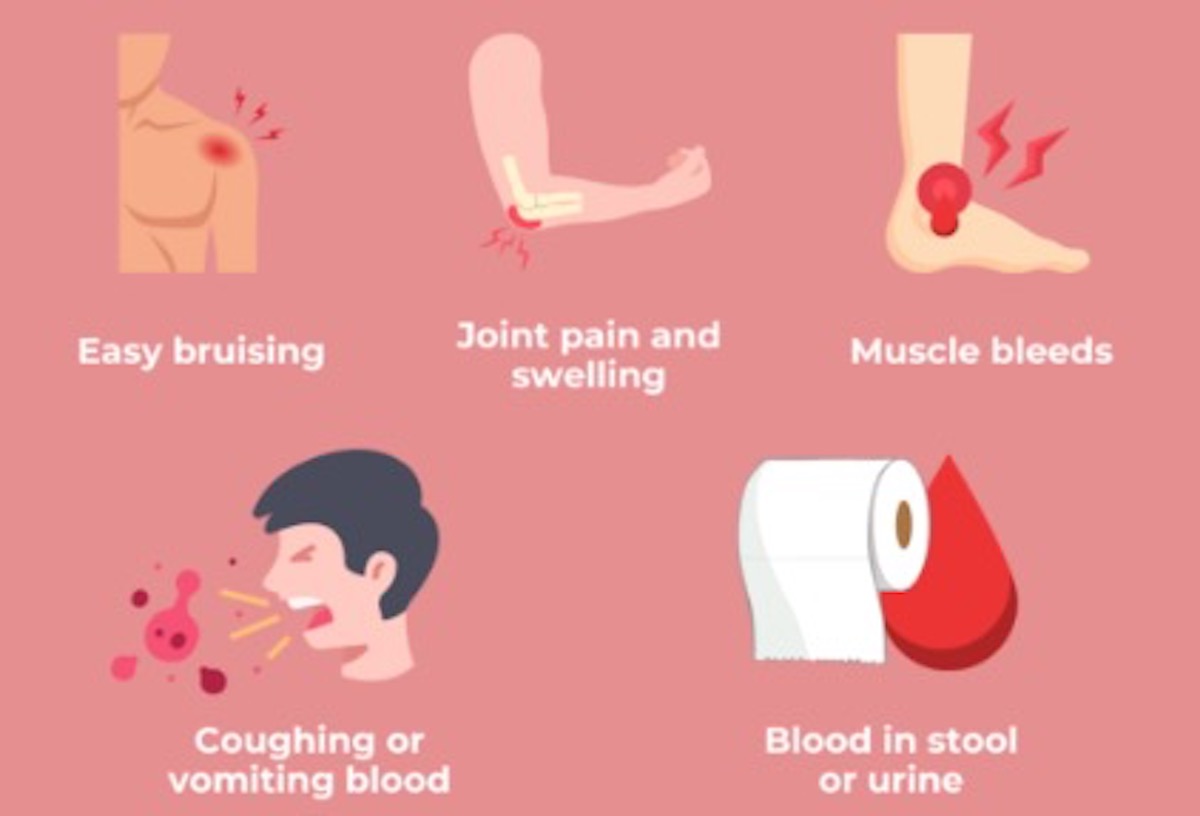Hemophilia B can lead to several complications, ranging from less severe to life-threatening. Some of the less severe complications include joint damage and pain, which occur due to repeated bleeding into the joints, causing swelling and discomfort. Over time, this can lead to arthritis or limited mobility in the affected joints. More serious, life-threatening complications involve bleeding into major organs or spaces within the body, such as the brain. This type of bleeding can be critical and may lead to long-term problems like brain damage, or even be fatal if not treated promptly. Bleeding in the throat or stomach is also dangerous because it can block airways or cause significant blood loss.

Symptoms of Hemophilia B
To prevent all these complications, it’s important to recognize symptoms of the blood disorder. Hemophilia B primarily causes excessive or prolonged bleeding, which can be noticeable through several common symptoms. One of the most frequent signs is bleeding into joints, which can cause swelling, pain, and stiffness, making it hard to move the affected joint. People with Hemophilia B might also experience easy bruising; a minor bump or scrape can result in a large bruise.
Other symptoms include:
- Nosebleeds that occur often and may be hard to stop.
- Blood in urine or stools, indicating internal bleeding.
- Unexplained and excessive bleeding from cuts or injuries.
- Bleeding gums, especially after dental work or from brushing teeth.
- In infants, prolonged bleeding after circumcision or from heel sticks used for blood tests.
How Is This Blood Disorder Diagnosed?
Are There Any Treatment Options?
The most common treatment for Hemophilia B involves replacing the missing clotting factor, Factor IX, to help the blood clot properly. This is usually done through regular injections of Factor IX concentrates, which can be derived from human blood or made synthetically. These injections can prevent or control bleeding episodes and are often given at home.
Other treatment options include:
- Prophylaxis: Regular, preventive doses of Factor IX to reduce the frequency of bleeding episodes and prevent joint damage.
- On-demand therapy: Treatment given only at the time of bleeding or before surgery to prevent excessive blood loss.
- Gene therapy: A newer approach aimed at introducing genes into the body that can produce the missing clotting factor, potentially reducing the need for regular injections.
- Antifibrinolytics: Medications that help prevent clots from breaking down too quickly, often used in conjunction with other treatments, especially for mouth or nose bleeds.
These treatments help manage symptoms and improve the quality of life for those living with Hemophilia B. Do you need more information about this blood disorder? Or about possible treatment options? Do your symptoms not match those listed above? Then search further here quickly:

